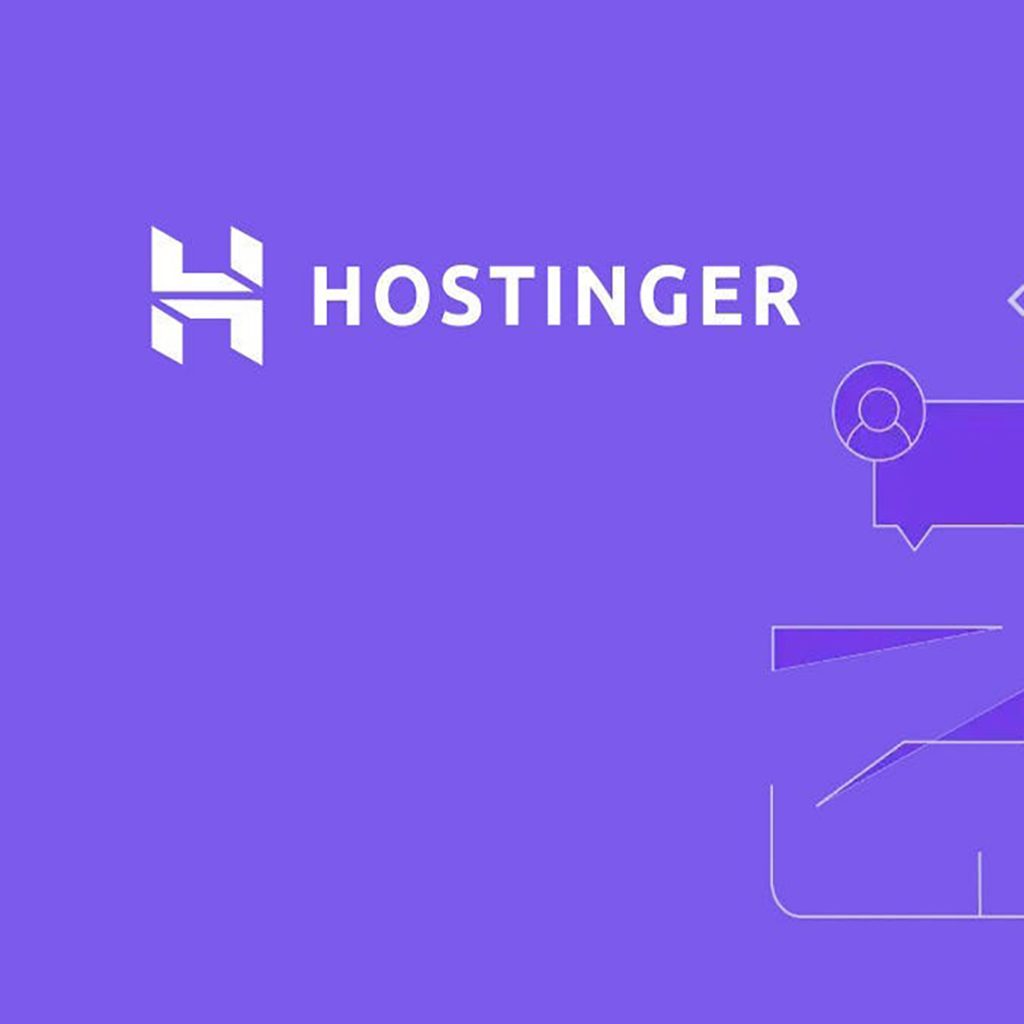
Top 10 Best Shared Hosting Services in 2025
HostingWhen I first started exploring web hosting options in the U.S., the sheer variety of shared hosting providers was overwhelming. I remember scrolling through endless websites, reading about features, pricing, uptime, and support, and feeling unsure which company would give me the best combination of affordability, reliability, and ease of use. Over the years, I’ve tested multiple shared hosting providers firsthand, keeping track of performance, customer support, and extra features. 2025 has brought new developments in hosting technology, AI-driven optimizations, and better customer service, making shared hosting more reliable and feature-rich than ever.
Shared hosting remains a favorite among beginners, small business owners, bloggers, and hobbyists because it is cost-effective, simple to manage, and comes with managed server maintenance. Each provider in my list of top 10 has been thoroughly tested for uptime, speed, ease of use, and additional tools like free SSL certificates, website builders, and automated backups.
Understanding Shared Hosting
Shared hosting is essentially a server environment where multiple websites share the same resources—CPU, RAM, and storage. I often think of it as renting an apartment in a high-rise building: each resident has their own space, but the utilities and infrastructure are shared. This approach allows hosting providers to offer extremely affordable plans while still maintaining server management, security patches, and software updates.
The downside is that heavy traffic or resource-hungry applications on one website can affect other sites on the same server. That said, for small businesses, personal websites, or blogs with moderate traffic, shared hosting delivers exactly what is needed: simplicity, cost efficiency, and sufficient performance without the complexities of VPS or dedicated servers.
Providers such as Hosting.com, Hostinger, and HostPapa have focused on making shared hosting intuitive and beginner-friendly while maintaining strong uptime and fast server speeds. Over time, I’ve noticed that reliable shared hosting can feel surprisingly robust for the right type of website, particularly if the provider leverages modern optimizations like LiteSpeed servers, NVMe storage, and AI-driven caching.
Choosing the Right Shared Hosting
Selecting a shared hosting provider in 2025 is more nuanced than simply choosing the cheapest plan. I’ve learned that evaluating providers involves several factors beyond price:
1. Performance and Speed
Site speed is critical for retaining visitors and improving SEO. Many U.S.-based hosting providers have adopted SSD storage, NVMe drives, LiteSpeed caching, and content delivery networks (CDNs) to enhance page load times. Hosting.com, for example, uses AI-driven performance optimization and Turbo Hosting to deliver up to 20 times faster loading speeds. Personally, I’ve seen websites hosted on these platforms perform smoothly even with moderate traffic surges.
2. Uptime and Reliability
Nothing frustrates me more than checking my site only to find it offline. The top shared hosting providers guarantee at least 99.9% uptime, which translates into minimal disruptions for visitors. Companies like Hostinger and HostPapa maintain continuous monitoring and proactive server management, ensuring that even during traffic spikes, the impact on performance is minimal.

3. Security Measures
Shared hosting introduces unique security considerations because multiple websites share server resources. I prefer providers that include free SSL certificates, malware scanning, firewalls, and DDoS protection. HostArmada, for instance, combines cloud SSD technology with active malware protection and daily backups, which gives me peace of mind for WordPress sites and small business applications alike.
4. Ease of Use
A friendly control panel can make all the difference when setting up a website. I have tested both cPanel and proprietary dashboards, and I’ve found that platforms like Hostinger’s hPanel simplify complex tasks, from WordPress installation to domain management. Even as my sites grew, these interfaces allowed me to handle day-to-day maintenance efficiently without having to dive into server configurations.
5. Customer Support
In 2025, customer support remains a critical differentiator. I rely on providers who offer 24/7 support via live chat, ticketing, or phone. Hosting.com, HostPapa, and HostArmada all impressed me with responsive teams who quickly resolve issues ranging from domain setup to WordPress migration.
6. Extra Features
Shared hosting plans are now more feature-rich than ever. I pay close attention to the inclusion of:
- Free domain registration
- SSL certificates
- Daily automated backups
- One-click CMS installations
- Website builders
- Email hosting
These extras can save both time and money, especially when starting a new website.
The Top 10 Shared Hosting Providers of 2025
After months of testing, reading thousands of user reviews on HostAdvice.com, and monitoring real-world performance, I have ranked the following providers as the top 10 shared hosting services in the U.S. in 2025:
1. Hosting.com – Best Overall
Hosting.com stands out for its combination of affordability and reliable performance. Its shared hosting plans start at just \$1.79 per month, making it one of the most economical options for small websites and personal blogs. The platform offers unlimited bandwidth, free SSL certificates, and an intuitive control panel.
From my experience, Hosting.com’s AI-driven optimizations make even shared hosting feel faster than typical low-cost plans. The customer support team is available 24/7 via chat, email, and phone, providing rapid solutions for issues ranging from WordPress installations to server configuration adjustments.
I’ve observed that while traffic spikes can occasionally slow performance due to shared resources, Hosting.com balances cost-effectiveness with reliable uptime, making it ideal for small businesses and new website owners.
2. Hostinger – Feature-Rich Shared Hosting
Hostinger has always impressed me with its balance between functionality and affordability. With plans starting at \$2.99 per month, Hostinger offers LiteSpeed-powered servers, custom hPanel dashboards, and one-click installations for over 400 apps including WordPress.
Hostinger’s combination of automated backups, Cloudflare CDN integration, and DDoS protection makes it my go-to choice when security and speed are priorities. Even for beginners, their guides and tutorials simplify every step, while advanced users benefit from performance tweaks, HTTP/2, and PHP 8 support.
3. HostPapa – Best for Small Businesses
I often recommend HostPapa for small businesses and multilingual users. Plans start at \$2.95 per month, including SSD storage, free SSL certificates, and one-click CMS installations. HostPapa’s cPanel interface is intuitive, and the “PapaSquad” support team offers responsive assistance in multiple languages.
For startups and local businesses, HostPapa provides excellent uptime, DDoS protection, and site migration support, ensuring that even newcomers can launch professional websites without technical stress.
4. Neoxea – Budget-Friendly Global Hosting
Neoxea is ideal for entry-level users who need worldwide accessibility at minimal cost. Starting at \$1.99 per month, Neoxea provides SSD servers, daily backups, and free SSL. The platform is particularly appealing for students, hobbyists, and small-scale bloggers who want low-cost hosting with basic but reliable performance.
While Neoxea lacks some advanced security features like DDoS mitigation, it remains perfect for low-traffic websites where affordability is paramount.
5. Webcentral – Localized Hosting for Australia (Optional U.S. Interest)
Although Webcentral primarily focuses on Australian users, I’ve seen U.S.-based entrepreneurs use it for projects requiring data compliance or local support. Starting at \$1.97 per month, Webcentral offers cPanel management, email hosting, and scalable bandwidth. Its local customer support ensures quick problem resolution, though the advanced features are limited compared to global hosts.
6. JetHost – Simple and Reliable
JetHost provides straightforward shared hosting for personal sites and small businesses. At \$1.99 per month, I’ve experienced solid uptime, free SSL, and one-click WordPress installation. While it isn’t suited for high-traffic sites, JetHost’s affordability and ease of use make it perfect for hobbyists and bloggers who want an uncomplicated hosting solution.
7. Cloud86 – High-Speed Hosting for EU Focus
Cloud86 offers strong performance with LiteSpeed servers and NVMe storage, starting at \$2.29 per month. While it primarily targets Dutch and EU users, its speed optimizations and efficient control panel make it a viable choice for U.S.-based developers running multi-regional sites. Daily backups, DDoS protection, and intuitive user dashboards enhance reliability and ease of management.
8. HostArmada – Optimized for WordPress
HostArmada is my preferred choice for WordPress users, thanks to cloud SSD hosting and 1-click installations. Plans begin at \$2.49 per month, including free domain, SSL, daily backups, malware scanning, and multiple data center options. HostArmada’s support is available 24/7 via live chat, tickets, and phone, ensuring seamless setup and ongoing site management.
9. BoostedHost – Scalable Essentials
BoostedHost is tailored for startups and personal websites, starting at \$2.35 per month. I’ve found its LiteSpeed servers, one-click app installations, and integrated caching valuable for growing projects. While advanced configurations are limited, the affordability and scalability make it ideal for users experimenting with web development or gradually expanding traffic.
10. Verpex Hosting – Premium Shared Hosting
Verpex Hosting offers a premium approach to shared hosting, starting at just \$0.59 per month. I’ve been impressed with its global data centers, LiteSpeed servers, and the ability to host multiple sites under a single plan. It includes free SSL, daily
backups, Imunify360 security, and white-label options for resellers. Verpex is especially useful for freelancers or small agencies that want scalability, global reach, and reliable support.
Using Reviews and Platforms to Make Decisions
When evaluating these providers, I often rely on platforms like HostAdvice, WPBeginner, HostingAdvice.com, and PCMag Hosting Reviews. These sites aggregate expert reviews, user feedback, uptime statistics, and detailed feature comparisons. Using multiple perspectives helps me avoid biased recommendations and choose hosting services that truly meet my needs.

Practical Considerations When Choosing Shared Hosting
From my experience, several practical points are essential:
- Budget vs. Value – I weigh initial cost against features, uptime, and support. Sometimes spending a few extra dollars per month avoids major headaches later.
- Website Type and Traffic – Low-traffic blogs do well on basic plans, but business websites with growth potential benefit from scalable providers.
- Security Needs – SSL certificates, backups, and malware protection are non-negotiable for sites handling sensitive data.
- Support Availability – Quick, knowledgeable support reduces downtime and learning curves, particularly for beginners.
- Extra Features – Free domains, email accounts, and one-click CMS installations enhance usability and save time.
Shared Hosting Use Cases
Shared hosting in 2025 is highly versatile:
- Bloggers and Creators – Quick setup, free SSL, and CMS installation make it perfect for content creation.
- Students and Hobbyists – Affordable learning platforms with no technical barriers.
- Freelancers and Portfolios – Professional hosting without complexity.
- Local Businesses – Brochure-style websites, small e-commerce, and contact pages.
- Nonprofits – Secure and cost-effective platforms for community outreach.
2025 has made shared hosting more robust, feature-rich, and affordable than ever. Whether using Hosting.com for cost-effective reliability, Hostinger for performance, HostArmada for WordPress optimization, or Verpex for scalability, each of the top 10 providers delivers unique advantages suited to different needs.
Using trusted platforms like HostAdvice.com, WPBeginner, and HostingAdvice.com helps me stay informed about performance updates, new features, and user feedback. Shared hosting remains a viable, accessible, and reliable solution for individuals, businesses, and creatives in the U.S., providing the tools needed to launch and maintain websites efficiently.
You may also like
Recent Posts
- Next-Generation Gaming Consoles and Accessories: The Must-Have Gear for E-Sports Players
- 2025 TV Market Revealed: The Perfect Fusion of Ultra HD and Smart Features
- 2025 iPad Pro vs. Android Tablets: Who is the King of Efficient Office Work?
- 2025 Cameras and Photography: How Technological Advances Have Reshaped My Photography Experience
- Keep Your Website Solid as a Rock: My Perspective on Hosting

Leave a Reply